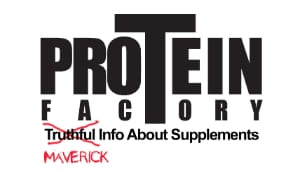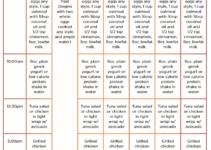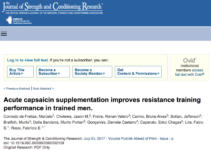Why keto?
Why keto, you may ask? Well, there are many reasons. For one, it has been shown to be especially helpful in combating certain diseases such as Alzheimer’s and diabetes. However, we will only be focusing on the aspects of keto relevant to weight training enthusiasts.
Keto has a number of benefits. For starters, it is great for “cutting” or fat loss. Keto diets have negligible amount of carbohydrates, which prevents elevated insulin levels. The hormone, insulin, is produced in response to all macronutrients, but it is more significant in response to carbohydrates. Insulin kickstarts the process of muscle growth and repair, but also acts as a storage hormone which can potentially cause fat gain in a calorie surplus.
Now, you may be wondering, “but IIFYM says a calorie is a calorie!”, hold up. While a calorie is a calorie from a thermodynamic standpoint, it neglects the effect of macronutrients on hormonal make up. In relation to insulin, macronutrients do make a huge difference to fat loss, especially in individuals who are not insulin-sensitive. See those I-eat-poptarts-every-meal guys who also happen to be shredded to the bone year round? Those are prime examples of insulin sensitive individuals who would do well with carb. While training does improve insulin sensitivity to a great degree, much of it is determined by genetics as well as history of obesity – former fat boys come to mind. Fat guys who have lost much of their bodyfat should recognize that this is a result of the shrinkage of fat cells, rather than the destruction of fat cells. The existence of those fat cells do affect insulin sensitivity to a certain extent.
Who is keto for?
But I digress. Without diving into unnecessary detail, keto diets are excellent for beginners because beginners do not require that much carbohydrate intake to sustain training and performance, as compared to more advanced trainees. Strength training, unlike other athletic endeavours, is surprisingly undemanding on glycogen stores and calorie consumption. Think about it – for every set you do, how much rest do you take? Then calculate the amount of time you actually spent on all the exercises. Therefore, glycogen depletion is really an overrated concern.
Now, even if glycogen is entirely depleted, it should not affect the ability of a beginner to progress. The reason is that for beginners, workout volumes should not be high as it is unnecessary to stimulate adaptation. Low workout volumes can be adequately sustained through a keto diet. Thus, it is possible for beginners to make significant progress in training notwithstanding carb restriction.
For other trainees, the sustenance of athletic performance becomes an overriding concern and more diets may be suitable.
How do I start?
While most diets just begin, keto diets do not. There is a 2-3 week adaptation phase which your body requires to become ketone-dependent. During these 2-3 weeks, in the absence of carbs, the body turns to fat as a source of fuel, with the production of ketone bodies being the quickest source as well as the source accepted by the brain. These 2-3 weeks require strict adherence and is, in my opinion, the toughest part of the diet as you’ll have to also adapt to the meal plans, fight off cravings and struggle against brain fog. However, I believe that the rewards will be worth it. So without further delay, let’s jump into it.
Macros and sample meal plans
- Begin with your maintenance calorie. There are many calculators out there, simply pick one as it is relatively inconsequential. You’ll make adjustments as you progress.
- With the maintenance calories, subtract the calories from protein. Protein intake is set at 1 – 1.5g per pound of bodyweight.
- The remainder of calories should be fat.
- Starchy carbohydrates need to be avoided. Fibrous carbs are fine.
- To put it all together, for a 200lb male with 3000cal maintenance:
3000 – (200 x 4) = 2200cals
2200/4 = 550g fat
Intake: 0 carb, 200 protein, 550 fat
Do not be alarmed to the high amount of fat. This is subject to possible higher intake of proteins as well as trace amounts of carbs. Lastly, this is at a maintenance level: on a cutting diet, the amount of fat will decrease as well.
Food choices are relatively straightforward: red meat, fatty white meals, fatty fish are all excellent choices. Healthy choices of fat should include those containing a high proportion of monounsaturated and polyunsaturated fat. Olive oils, nut oils, are good choices. Keep a rotation.
Transitioning into the future
When performance stalls or the desired goals are reached, you may wish to consider moving out of a keto diet. I personally think that a keto diet is not sustainable long-term, simply because it is a rigid approach towards carbohydrates. Who doesn’t love carbohydrates? Even if you don’t, your friends and family might. It is therefore no coincidence that keto diets seem to fall within a group of “speciality diets” reserved for specific purposes.
For further fat loss, I recommend a low carb diet, which basically is a keto diet, with the minimum amount of carbs needed to sustain performance. But do note that a low carb diet runs on an entirely different premise altogether: there’s no longer the conversion of fat to ketones who is the defining characteristic of keto diets.
Happy keto-ing!
Alex Rogers is a supplement manufacturing expert. He has been formulating, consulting, & manufacturing dietary supplements since 1998. Alex invented protein customization in 1998 & was the first company to allow consumers to create their own protein blends. He helped create the first supplement to contain natural follistatin, invented whey protein with egg lecithin, & recently imported the world’s first 100% hydrolyzed whey.






